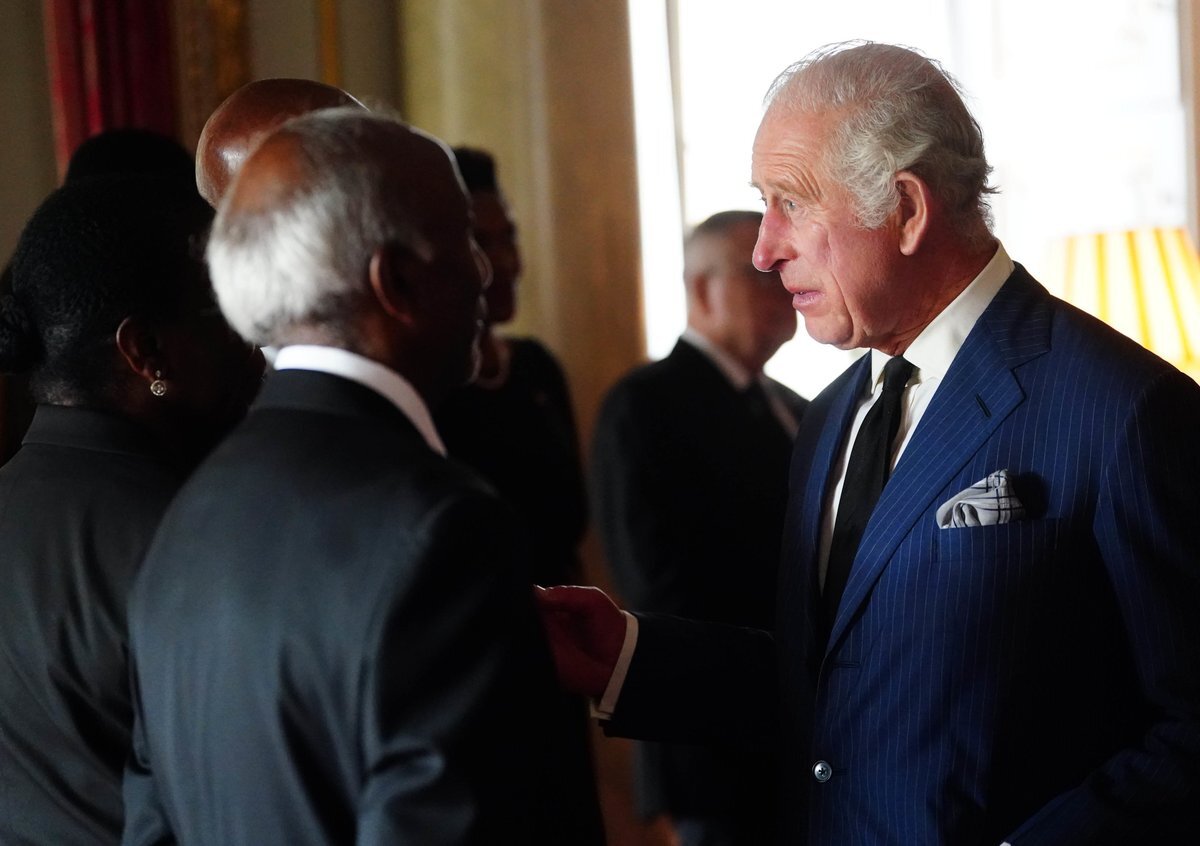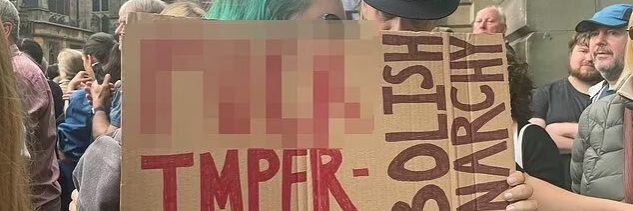Fears of freedom of expression being infringed grew after the police response to non-violent protests. Source: Darshna Soni, Twitter.
The treatment of pro-republic and anti-monarchy protesters in the UK have caused freedom of speech concerns to grow.
Some events and locations had protesters holding anti-monarchy and pro-republic signs, after Charles became king following the death of his mother Queen Elizabeth II.
Fears of freedom of expression being infringed grew after the response to non-violent protests.
Police in Edinburgh arrested a man heckling Prince Andrew, calling him a “sick old man” during the procession of the Queen’s coffin and the royal family down the Royal Mile.
A woman was also arrested in the city for holding a handwritten sign saying “F*** Imperialism. Abolish monarchy”.
Local media reported the woman was charged under a 2010 law which covers behaviour “likely to cause a reasonable person to suffer fear or alarm”.
Republican protesters with signs that said “Republic Now” and “Our Republic for a Democratic Future” were also in the crowd and were not arrested by police.
Protesters gathered the next day on the Royal Mile with a blank banner and holding white pieces of paper to symbolise their belief they were unable to express anti-monarchy views.
“No one should be arrested for just expressing republican views. Extraordinary – and shocking – that this needs saying,” said the Labour MP Zarah Sultana.
A new crime bill was recently passed in the UK that increased the power police have in stopping protests, including being able to stop single-person protests.

The bill provides a lower and vaguer threshold for police intervention and included the addition of disruptive noise as a reason to limit protests.
“This is a period of national mourning for the vast, vast majority of the country, but the fundamental right to protest remains the keystone of our democracy,” said a spokesperson for new UK Prime Minister Liz Truss when asked about the protests and police criticism.
Before the Queen died and Charles became king, the republic movement of the UK has been running a #NotMyKing campaign.
Graham Smith, the chief executive of the campaign group Republic, said organisers did not want to push their message during the mourning period but felt they needed to speak up.
“We had planned not to campaign during this time and wanted to take into account how people were responding, but the very public and immediate accession of Charles to the throne needed a response,” he said Graham Smith, the chief executive of Republic.
“We condemn these arrests in the strongest possible terms,” Smith said in a statement condemning the protest arrests.
“Free speech is fundamental to any democracy. At a time when the media is saturated with fawning over a king appointed without discussion or consent, it is even more important.
“We will be writing to police forces around the country, raising these concerns. We intend to organise protests at the coronation and will expect those protests to be allowed to go ahead peacefully.”





